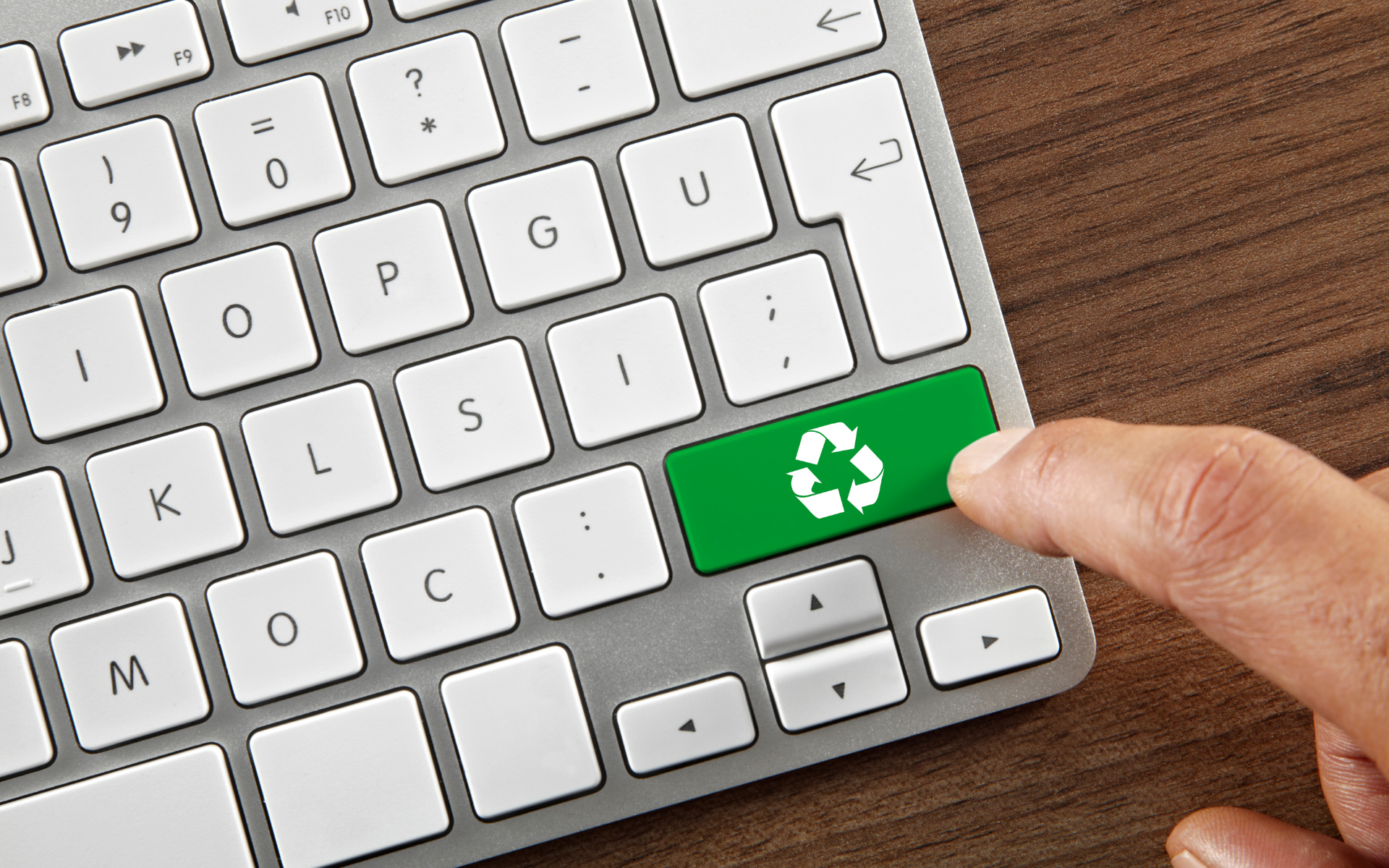We spend the majority of our day at work, making it crucial to adopt straightforward practices to enhance our recycling habits, so that we can reduce our environmental footprint. This includes the consumable materials but also the electronic devices that are often use in our professional setting.
The Importance of Recycling in the Office
Recycling reduces waste by giving it a second life, thereby preventing the squandering of natural resources and retrieving recycled raw materials (RRMs) which are reintroduced into the manufacturing process of a new product. Hence, it has a positive impact on the environment and proves to be one of the best economic solutions for sustainable development.
Cardboard, plastic bottles, food packaging, archives, and small WEEE (Waste Electrical and Electronic Equipment) are some of the most common waste in businesses. It’s important to pay special attention to these WEEE, as they contain some toxic chemicals. When not recycled, they pose a potential threat to the environment (if buried or discarded) and to health (if toxic fumes are inhaled when they are burned after being collected by informal recyclers). Therefore, recycling them is crucial for fostering an eco-friendly professional world.
Common Mistakes in Office Recycling
The most common mistakes are related to waste sorting: these are often set aside in a single container intended for trash. However, they should be sorted according to their category: paper, cardboard, plastic, glass, WEEE. This, given that each type of waste will be handled by different recycling professionals, depending on the respective sectors they specialize in.
Let’s remember that unsorted waste not intended for recycling is directed to landfill sites, like the Mare Chicose site in Mauritius, or to incineration centers in other countries. However, these practices can produce health and public life consequences, especially concerning e-wastes due to their toxic nature :
• In case of landfilling: soil, water, and groundwater pollution if the site is poorly managed.
• In case of incineration: degradation of ambient air quality, increase in the greenhouse effect which is responsible for climate change if health standards are not adhered to.
Solutions to Improve Office Recycling Habits
Here are some concrete action suggestions to improve recycling in the business:
• Establishing a collection point in common areas to gather various waste according to their nature. A selective sorting protocol should accompany these measures to facilitate the destination of each waste bin.
• Reducing waste production by opting for reusable supplies and favoring dematerialization through digital exchanges.
• Employer involvement plays a significant part in this approach by instituting a sensitization campaign for all its employees and partners. This awareness will be carried out regularly, in addition to implementing periodic monitoring and evaluation. This is to measure the achievement of goals and move efficiently towards a green future.
The continuous improvement of recycling habits in businesses is everyone’s responsibility. For the employer, it means motivating employees to recycle, through rewards and encouragement.
Those who want more information about recycling, particularly WEEE, can turn to BEM Recycling. They are an experienced professional operating in Mauritius for over 20 years. They are also committed to promoting social and ecological values, the main pillars of sustainable development. In addition to sharing their advice and recommendations, BEM Recycling handles the treatment of your WEEE professionally, respecting the current regulatory standards.
